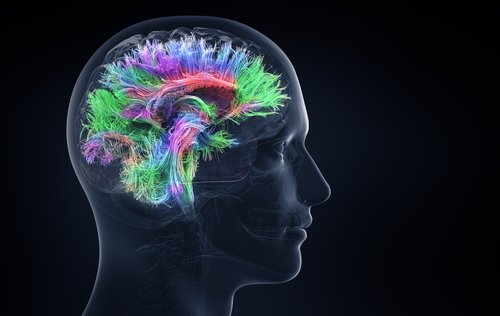Two Therapies, One Approved, Prevent Dementia-related Brain Damage in Mice
Written by |

Two therapies — one approved and the other already in clinical testing — were seen in a study in mice to work to reduce brain shrinkage and prevent brain cell death.
The therapies block a cellular pathway known to be responsible for neurodegeneration and brain cell death in mice. One of the drugs, trazodone hydrochloride, or Desyrel, and is approved by the U.S Food and Drug Administration to treat depression, anxiety disorders, and insomnia. The other, dibenzoylmethane (DBM), is now in use in cancer trials.
These findings was reported in the study, “Repurposed drugs targeting eIF2α-P-mediated translational repression prevent neurodegeneration in mice,” published in the scientific journal Brain.
“This research is at a very early stage and has not yet been tested in people — but as one of the drugs is already available as a treatment for depression, the time taken to get from the lab to the pharmacy could be dramatically reduced,” said Doug Brown, director of research and development at the Alzheimer’s Society in the U.K., in a news release.
In a previous study, the research team showed that accumulation of misfolded protein in mice brain cells would promote a natural defense system that blocks the production of new proteins. This mechanism caused neurodegeneration and neuron cell death in animal testing, and was found to be over-activated in patients with Alzheimer’s disease and related disorders. Using an experimental oral drug, researchers were able to reverse this process and prevent neurodegeneration. But the therapy was found to be toxic to the pancreas and not suitable for human testing.
So the research team, looking for an alternative that might work, evaluated 1,040 compounds from the National Institute for Neurological Disorders and Stroke collection, about 75 percent of which are FDA-approved drugs.
They identified two drugs that could restore protein production in mice neurons, trazodone hydrochloride and DBM. Both were found to prevent signs of brain damage, reduce the brain shrinkage common in dementias, and restore memory in the animals. All the tests were performed with clinically relevant doses over a prolonged time, without reports of major systemic toxicity in the tested mice.
“We know that trazodone is safe to use in humans, so a clinical trial is now possible to test whether the protective effects of the drug we see on brain cells in mice with neurodegeneration also applies to people in the early stages of Alzheimer’s disease and other dementias,” said Giovanna Mallucci, the study’s senior author and an associate director of the UK Dementia Research Institute.
“Interestingly, trazodone has been used to treat the symptoms of patients in later stages of dementia, so we know it is safe for this group. We now need to find out whether giving the drug to patients at an early stage could help arrest or slow down the disease through its effects on this pathway,” she said.





